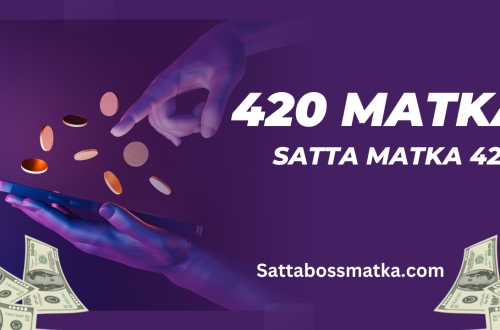
The Lottery: A Game of Chance, Hope, and Dreams
The lottery, a game of chance that has existed for centuries, continues to captivate people worldwide. From small local drawings to multi-million dollar jackpots, lotteries have become a popular pastime, offering the tantalizing possibility of sudden wealth. While the allure of winning big is undeniably appealing, the lottery also brings up various questions surrounding its fairness, its impact on individuals and communities, and the ethics behind its promotion. In this article, we explore the history, psychology, economics, and controversy of the lottery. TC Community
A Brief History of the Lottery
Lotteries can trace their origins back to ancient times, where they were used as a form of taxation or a way to distribute property. The first recorded lottery in history dates back to the Han Dynasty in China, around 205 BC, where they were used to fund public projects, including the Great Wall. The concept of a lottery spread throughout Europe over the centuries, with notable examples such as the Roman Empire, where lotteries were used to give away prizes during celebrations.
The modern lottery as we know it began to take shape in the 16th century, when European countries started holding public lotteries to raise funds for various civic and charitable purposes. The first official state-run lottery in the United States was established in 1744 in the state of Massachusetts, and lotteries have been a staple of American life ever since.
Today, lotteries are a fixture in many countries, with massive national and international games like Powerball, Mega Millions, and EuroMillions drawing millions of participants each week.
The Psychology of the Lottery
At its core, the lottery is a game of chance. The odds of winning a major jackpot are extraordinarily low—Powerball’s odds are 1 in 292 million, for instance. Despite these long odds, millions of people continue to buy tickets, driven by the psychological lure of what winning could mean.
One of the key psychological elements at play is the concept of hope. Buying a lottery ticket allows people to imagine a future where they no longer have to worry about financial struggles. For many, it’s a form of escapism—a way to dream of a life free from debt, mortgages, and the burdens of everyday living. This fantasy of sudden, life-changing wealth is a powerful motivator, and it’s what keeps many coming back, even in the face of long odds.
Another psychological factor is availability bias—the tendency of people to overestimate the likelihood of events that are vivid or easily recalled. When someone wins a major lottery jackpot, their story is widely reported, reinforcing the idea that it’s possible to win. This can lead to a cognitive bias where people believe they are more likely to win than they actually are.
The Economics of the Lottery
Economically, lotteries are a multi-billion dollar industry. In the U.S., state lotteries generate an enormous amount of revenue, often used to fund public programs such as education, infrastructure, and health services. According to the North American Association of State and Provincial Lotteries, U.S. lottery sales reached over $90 billion in 2020 alone.
While the revenue generated by lotteries is considerable, it comes with its share of economic concerns. One of the most significant criticisms of the lottery is that it disproportionately affects lower-income individuals. Studies have shown that people from lower socioeconomic backgrounds are more likely to play the lottery and spend a higher percentage of their income on tickets. For many, the lottery is seen as a last-ditch effort to achieve financial freedom, despite the long odds.
In contrast, wealthier individuals are less likely to play the lottery, and when they do, they spend a smaller proportion of their income. This has led critics to argue that lotteries are a form of regressive taxation, where the poor are effectively paying a higher percentage of their income for the chance to win a prize, which statistically is unlikely.
Additionally, the promise of large jackpots can sometimes obscure the reality of the winnings. The tax burden on lottery winners is significant, and the lump-sum payouts may be much smaller than the advertised jackpot amount after taxes and other deductions. This creates a situation where a winner may receive far less than they initially expected.
The Ethics of the Lottery
The ethics of the lottery are a subject of ongoing debate. On one hand, proponents argue that the lottery provides people with an opportunity to improve their lives, particularly for those who may not have other means of gaining financial freedom. The funds generated by state lotteries are often directed toward public good, such as funding education or healthcare programs.
However, critics argue that the lottery preys on vulnerable individuals, particularly those in financial distress. The marketing of lottery tickets often emphasizes the idea of instant wealth, promoting a fantasy that many people cannot realistically expect to achieve. The frequent promotion of lotteries through advertising, combined with the low odds of winning, raises ethical questions about whether lotteries are exploiting the hopes and dreams of ordinary people.
Additionally, the rise of online lotteries has raised concerns about the potential for increased addiction to gambling. Online platforms allow people to play more frequently and more easily, which may exacerbate the negative social and financial impacts of the lottery.
The Impact of Winning
For those fortunate enough to win a large lottery prize, the aftermath can be both exhilarating and challenging. While winning a significant sum of money can offer financial freedom and the ability to pursue long-held dreams, it also comes with its own set of difficulties. Many lottery winners experience a change in lifestyle, increased pressure from family and friends, and difficulty managing newfound wealth. Studies have shown that a significant percentage of lottery winners end up experiencing financial trouble or personal hardship after their win.
Moreover, the pressure to share one’s winnings, or the fear of being targeted by scammers, can contribute to feelings of isolation and anxiety. In some cases, the sudden wealth has led to strained relationships and, in extreme cases, even tragic outcomes.
Conclusion
The lottery remains one of the most intriguing aspects of modern society. It offers a tantalizing glimpse of the possibility of financial freedom but also raises important questions about fairness, responsibility, and the potential consequences of winning. While the odds are heavily stacked against the majority of players, the hope and excitement that lotteries generate remain a driving force behind their continued popularity.
Ultimately, the lottery reflects a broader human desire for change and a better life, tapping into the universal fantasy of striking it rich. While it can be a source of enjoyment and an occasional lifeline for state programs, it’s crucial to approach it with a realistic understanding of its limitations and impacts. In a world where the odds are never in our favor, the lottery serves as a reminder that sometimes, the greatest prize is simply the ability to dream.
You May Also Like

Any proper Satta Matka website will not best
March 7, 2024
Predict The Right Satta Number To Win The Satta Matka Games
April 25, 2024